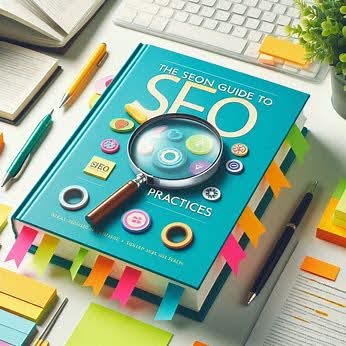Effective SEO Strategies For New Bloggers
Starting a blog is an exciting venture, but driving traffic to your site requires a solid understanding of Search Engine Optimization (SEO). For new bloggers, mastering SEO can seem daunting, but with the right strategies, you can significantly improve your blog’s visibility and attract more readers. Here’s a detailed guide on effective SEO strategies for new bloggers.
1. Keyword Research
Understanding Keywords:
Keywords are the terms and phrases that people type into search engines. Identifying the right keywords is the foundation of SEO.
Tools for Keyword Research:
- Google Keyword Planner: Free tool to find keywords related to your niche.
- Ahrefs and SEMrush: Paid tools offering comprehensive keyword analysis and competitive insights.
- Ubersuggest: A user-friendly tool providing keyword suggestions and search volume data.
How to Use Keywords:
Primary Keyword: Choose a primary keyword for each blog post and use it in the title, first paragraph, and a few times throughout the content.
Secondary Keywords: Use related keywords naturally within the content to enhance relevance.
2. On-Page SEO
Title Tags and Meta Descriptions:
- Title Tag: Ensure your title is compelling and includes your primary keyword. Keep it under 60 characters.
- Meta Description: Write a brief, enticing description (under 160 characters) that includes your primary keyword to improve click-through rates.
Headings and Subheadings:
– Use H1 for the main title and H2, H3 for subheadings. Incorporate keywords naturally in these headings to improve readability and SEO.
Content Quality:
Original Content: Ensure your content is unique and provides value to readers.
Length: Longer posts (1,500+ words) tend to rank better, but quality should never be sacrificed for length.
Readability: Use short paragraphs, bullet points, and images to make your content easy to read.
Internal Linking:
– Link to other relevant posts on your blog to keep readers engaged and improve the site’s crawlability.
3. Technical SEO
Site Speed:
– Use tools like Google PageSpeed Insights to check your site’s speed and get recommendations for improvement. Slow-loading sites can hurt your rankings.
Mobile Optimization:
– Ensure your blog is mobile-friendly. Google uses mobile-first indexing, so a responsive design is crucial.
URL Structure:
– Keep URLs short, descriptive, and include your primary keyword. Avoid unnecessary words and numbers.
SSL Certificate:
– Secure your site with HTTPS. This not only protects your data but also boosts your SEO as Google favors secure sites.
4. Off-Page SEO
Backlink Building:
Guest Blogging: Write high-quality guest posts for reputable sites in your niche to earn backlinks.
Broken Link Building: Find broken links on other sites and offer your content as a replacement.
Social Sharing: Promote your content on social media to increase visibility and attract natural backlinks.
Engage with the Community:
– Participate in forums and comment on other blogs in your niche. Building relationships can lead to collaboration opportunities and backlinks.
5. Content Promotion
Social Media:
– Share your posts on platforms like Twitter, Facebook, and LinkedIn. Tailor your approach for each platform to maximize engagement.
Email Marketing:
– Build an email list and send newsletters featuring your latest blog posts. Encourage subscribers to share your content.
Content Repurposing:
– Turn your blog posts into videos, infographics, or podcasts. Different formats can reach new audiences and generate more backlinks.
6. Analytics and Adjustments
Google Analytics:
– Track your blog’s performance using Google Analytics. Monitor metrics like page views, bounce rate, and average session duration to understand how readers interact with your content.
Search Console:
– Use Google Search Console to track your site’s search performance. It provides insights into keyword rankings and alerts you to any issues affecting your SEO.
Regular Updates:
– SEO is not a one-time task. Regularly update your content to keep it relevant. Refresh old posts with new information and reoptimize them for current keywords.
Effective SEO strategies are essential for new bloggers to build an audience and gain visibility. By conducting thorough keyword research, optimizing on-page elements, improving technical SEO, building quality backlinks, promoting your content, and continuously analyzing performance, you can enhance your blog’s search engine rankings. Start implementing these strategies today, and watch your blog grow in authority and reach.
For more information, email admin@1dollarcreatives.com







